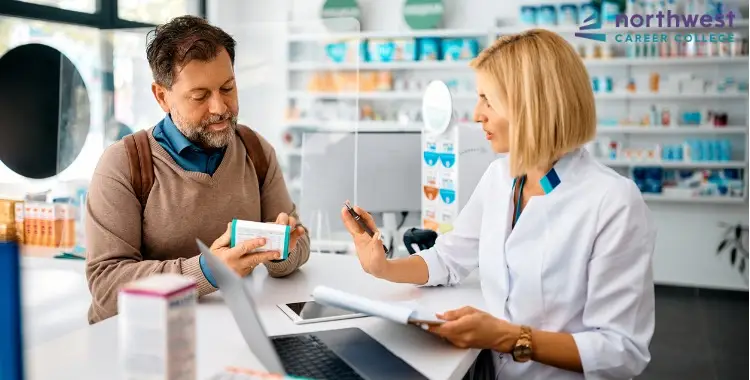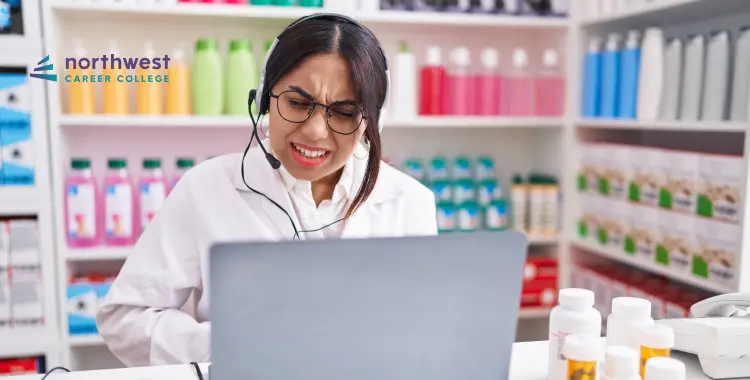The Ultimate Guide to Medication Storage: Tips for Pharmacy Technician
- May 14, 2024
- 4.2k views
- 4 min read
Pharmacy technicians help pharmacists provide medicines safely and effectively to patients. Aside from this main responsibility, the storage of medicines is one of the most critical areas in medication management.
Almost all environmental factors, such as temperature, humidity, light, and air, may impact the strength, form, and safety of medicines. Such best practices should be established and adhered to when storing medicine to maintain quality and prevent medication errors.
The guide will explore in detail what not to do around the storage of medication. Then, it will give practical hints and tips for a Pharmacy Technician in the storage of drugs appropriately and effectively.

Table of Contents
Importance of Proper Medication Storage
Proper medication storage is crucial for maintaining the effectiveness and safety of pharmaceutical products. Improper storage can cause the active ingredients to react and turn into an inert or even toxic compound for use. Storage factors include temperature, humidity, light exposure, and containers for storage.
The Do’s of Medication Storage
Store at Room Temperature
Proper storage of medications typically includes keeping them in a cool, dry place away from sunlight and moisture. Good medication storage places include closed, dark storage areas such as cabinets, drawers, or closets, as the temperature in these places doesn’t change much.
Carry Your Medications in the Original Packages
Keep medicines in their original containers, which keep all the information needed: the expiration dates, how and when to take them, and possible side effects. Try not to move pills into other containers unless a healthcare professional specifically tells you to do so.
Employ Child-Resistant Packaging
Medicines should always be stored in childproof containers and placed in locations not easily accessible by children or pets, thus reducing the risk of swallowing them unintentionally. Although these containers are designed to prevent young children from being able to access their contents, children can become very determined to open things like bottles. They may succeed despite childproof designs, so keeping them out of reach is critical.
Medication Reconciliation
Categorize medications by type and/or use (depending on your pharmacy’s protocols) to ensure there is no confusion and they are easy to access when they are needed. Labels or color-coded containers can be used to easily identify which medication goes where.
Stick To The Prescription
Adhere to special storage instructions that come with any medication; for example, in the refrigerator for specific liquids or room temperature for other medications, such as tablets and capsules. Without this, a medication can lose its efficacy.
The Don’ts of Medication Storage
Do Not Store Medicine in the Bathroom
However convenient the bathroom may look, it is not a good place to store medications. This is due to the fluctuating temperatures and humidity brought about by the showers and baths. Medications stored in a warm, humid environment (even one that comes and goes) tend to break down faster.
Do Not Keep the Drugs Near the Heat
Keep the drugs away from heat sources such as stoves, radiators, and the sun, as the chemical structure of the drug may be changed and become less potent when too much heat is applied. At very high temperatures, some drugs may melt or become soft.
Specific Drugs That Must Be Refrigerated Include
While refrigeration works for some, freezing disrupts the properties of others. Check the labeling or consult a pharmacist to confirm if refrigeration is recommended for specific medications.
Protect from Light
Photosensitive medications can degrade with exposure to light—thereby becoming less and less effective. Store medicines in an opaque container or dark areas where light will not affect their integrity.
Conclusion
In conclusion, proper medication storage is crucial for ensuring the safety and efficacy of pharmaceutical products. Individuals should follow the dos and don’ts outlined in this guide to maintain the potency and reliability of their medications.
Furthermore, it is equally important for pharmacy technicians to have a thorough understanding of proper medication storage. As healthcare professionals who handle and dispense medications, pharmacy technicians ensure patients receive safe medications by observing proper medication storage practices.
By having a good knowledge of proper medication storage, pharmacy technicians can help prevent medication errors and ensure patients receive the best possible care. They can also educate their patients about medication storage best practices and empower them to take better care of themselves





